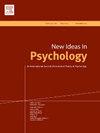在死亡和哀悼中导航伦理界限:对全球可复制框架的混合分析
IF 2.9
3区 心理学
Q2 PSYCHOLOGY, EXPERIMENTAL
引用次数: 0
摘要
由于全球危机、数字技术和文化纠缠的增加,死亡和哀悼的做法正在经历迅速的转变。这些转变产生了复杂的伦理挑战,在当代研究和实践中仍未得到充分探讨。本研究旨在研究死亡和哀悼背景下出现的伦理困境和文化适应,并为研究人员、从业者和政策制定者制定一个综合的、全球可复制的伦理框架。方法采用混合定性设计,我们对44项同行评议研究进行了prisma引导的文献综述,并对19位姑息治疗、人类学、心理学和数字伦理学的跨学科专家进行了半结构化访谈。混合主题内容分析(HTCA)确定了六个核心集群,包括仪式适应、数字哀悼、伦理审查困境、心理-社会-精神悲伤、危机破坏和政策空白。研究结果揭示了传统丧葬仪式与制度约束之间的紧张关系;程序性同意框架的伦理限制;人工智能悲伤技术的文化失调;缺乏文化和精神哀伤能力的综合训练。这些见解为构建全球可复制的死亡和哀悼研究伦理框架(GREF-DMS)提供了信息,该框架由五个相互关联的组成部分组成,供应用使用。结论本研究为哀悼语境中的伦理理论、数字创新和文化实践提供了一个新的框架。它提供了实用和可扩展的途径,以提高道德敏感性,跨学科合作,以及在不同的全球环境中对悲伤的文化基础反应。本文章由计算机程序翻译,如有差异,请以英文原文为准。
Navigating ethical boundaries in death and mourning: A hybrid analysis toward a globally replicable framework
Background
Death and mourning practices are undergoing rapid transformation due to global crises, digital technologies, and increased cultural entanglement. These shifts generate complex ethical challenges that remain underexplored in contemporary research and practice.
Objective
This study aims to examine the ethical dilemmas and cultural adaptations emerging in death and mourning contexts, and to develop an integrated, globally replicable ethical framework for researchers, practitioners, and policymakers.
Methods
Using a hybrid qualitative design, we conducted a PRISMA-guided literature review of 44 peer-reviewed studies and semi-structured interviews with 19 interdisciplinary experts in palliative care, anthropology, psychology, and digital ethics. A hybrid thematic content analysis (HTCA) identified six core clusters spanning ritual adaptation, digital mourning, ethical review dilemmas, psychosocial-spiritual grief, crisis disruption, and policy gaps.
Results
Findings reveal tensions between traditional mourning rituals and institutional constraints; ethical limitations of procedural consent frameworks; the cultural dissonance of AI-based grief technologies; and the absence of integrated training in cultural and spiritual grief competencies. These insights informed the construction of a Global Replicable Ethical Framework for Death and Mourning Studies (GREF-DMS), consisting of five interconnected components for applied use.
Conclusion
This study contributes a novel framework that bridges ethical theory, digital innovation, and cultural praxis in mourning contexts. It offers practical and scalable pathways to enhance ethical sensitivity, interdisciplinary collaboration, and culturally grounded responses to grief in diverse global settings.
求助全文
通过发布文献求助,成功后即可免费获取论文全文。
去求助
来源期刊

New Ideas in Psychology
Multiple-
CiteScore
4.80
自引率
3.80%
发文量
37
期刊介绍:
New Ideas in Psychology is a journal for theoretical psychology in its broadest sense. We are looking for new and seminal ideas, from within Psychology and from other fields that have something to bring to Psychology. We welcome presentations and criticisms of theory, of background metaphysics, and of fundamental issues of method, both empirical and conceptual. We put special emphasis on the need for informed discussion of psychological theories to be interdisciplinary. Empirical papers are accepted at New Ideas in Psychology, but only as long as they focus on conceptual issues and are theoretically creative. We are also open to comments or debate, interviews, and book reviews.
 求助内容:
求助内容: 应助结果提醒方式:
应助结果提醒方式:


